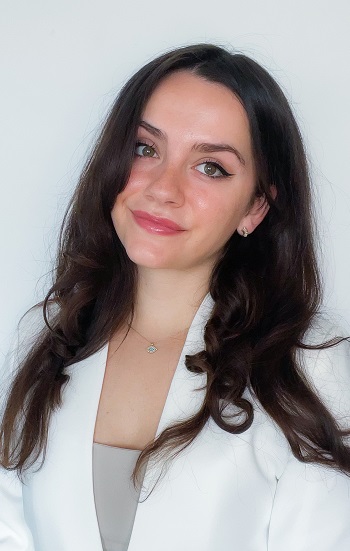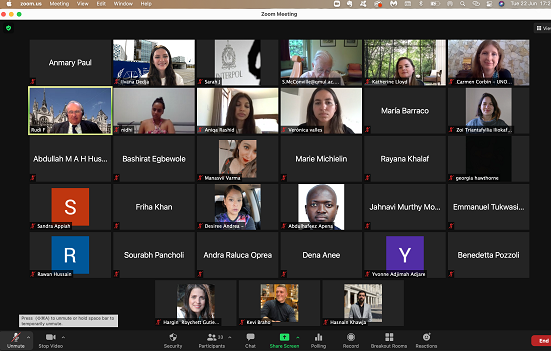A Career in Criminal Justice
Ilvana Dedja (Criminal Justice LLM student, and the Course Representative) organised an event on possible careers in the criminal justice.

On 22nd June, Ilvana held an event to discuss careers in criminal justice with four professionals working in the criminal justice system. This is what Ilvana said after the event:
“To be a law student you can jump from any pond to another – and the possibilities are endless in what you can become. In order to be a criminal justice student, you can have the passion and determination to focus yourself in one specific area of the law, which itself spans in so many other branches. Despite the excitement and joy, I was always filled with “what” and “what ifs” in deciding on my career path. Thinking that I was not alone, I decided to run this career event.
‘A Career in Criminal Justice?’ event was an interlude in our journeys in finding inspiration in the most obvious places – in people who have had amazing achievements in their career journeys. We had the pleasure of hearing stories from Carmen Corbin, the Head of Counter Cybercrime Programming (West and Central Africa) at UNODC; Seán McConville LLD JP, Professor of Law and Public Policy at QMUL; Rudi Fortson QC, an independent practising Barrister and a Visiting Professor of Law at QMUL, and Katherine Lloyd, a Barrister at QEB Hollis Whiteman.

The talk began with one question directed to our speakers ‘why this career path’? Adding a tiny disclaimer here – the event format changed completely with the way that Professor Seán answered this question. I thought the event would be more structured, where each invitee would share their story with us, one after another (maybe like a mini-Ted Talk). Notwithstanding this first thought, Professor Seán answered my question quite directly, completely putting the emphasis on passion and love for your profession. This served as a catalyst to an engaging conversation between the audience and our speakers, on passions, choices, and pivotal moments. For this, I would like to thank warmly Professor Seán.
Following up with Professor Rudi, we asked him on how he decided to follow his career path. For this, we got an amazing story about how the professor was heading to a completely different career path, but a moment shifted his journey. He decided to pursue a career as a barrister, and he has not regretted this decision not even once. His sense of accomplishment resonated with all of us, as he was driven by love for the profession and not vice versa. A moment to reflect from him was ‘to never give up’ and that ‘the perfect time to be part of the criminal justice system is now’ (thankfully there might be many legal problems at the moment).
Carmen’s career path also gave us a moment to reflect. Working in a dream position of many, she shared with us that she had never thought that her choices would get her to the UN. During her work in the U.S. judicial system, she got an offer to be a Court Counsel far away from home. She decided to follow her dream to work in international criminal law. Carmen is an inspiration, as she broke barriers and reminded us that the best approach in dealing with barriers for being a woman is disregarding them and believing in yourself. A key ingredient to her success history: mentors who have inspired and encouraged Carmen in her journey, and two children who have proved to her that there can be harmony between a professional career and family.
Katherine talked to us “without gloves”. It was exactly the talk you would expect from a QMUL Alumna to those who are just leaving their student years. Her career choice was also quite unexpected but working as a barrister has proved to be exciting and rewarding for her. Despite the hectic and long days, and the hard path in finally becoming a barrister, Katherine told us that if it is what you want, you should go for it. Her advice for us was: even if it is not what you want, the best thing to do is try it – and in interview phases, when employees will ask you why you want to become a solicitor and not a barrister, you can always say that you tried it and it did not work for you. All the speakers were of the same opinion that a good professional should have variety in their career path. Staying in the same place, being that academia, the UN or anywhere, might often hold you back in reaching your ‘mountains’.
As an end note, I would like to thank heartfully Carmen, Sean, Rudi, and Catherine, for finding a moment to be part of this event and for their immersive insights and advice on a career in criminal justice. Here’s to those who inspire us and do not even know it”.